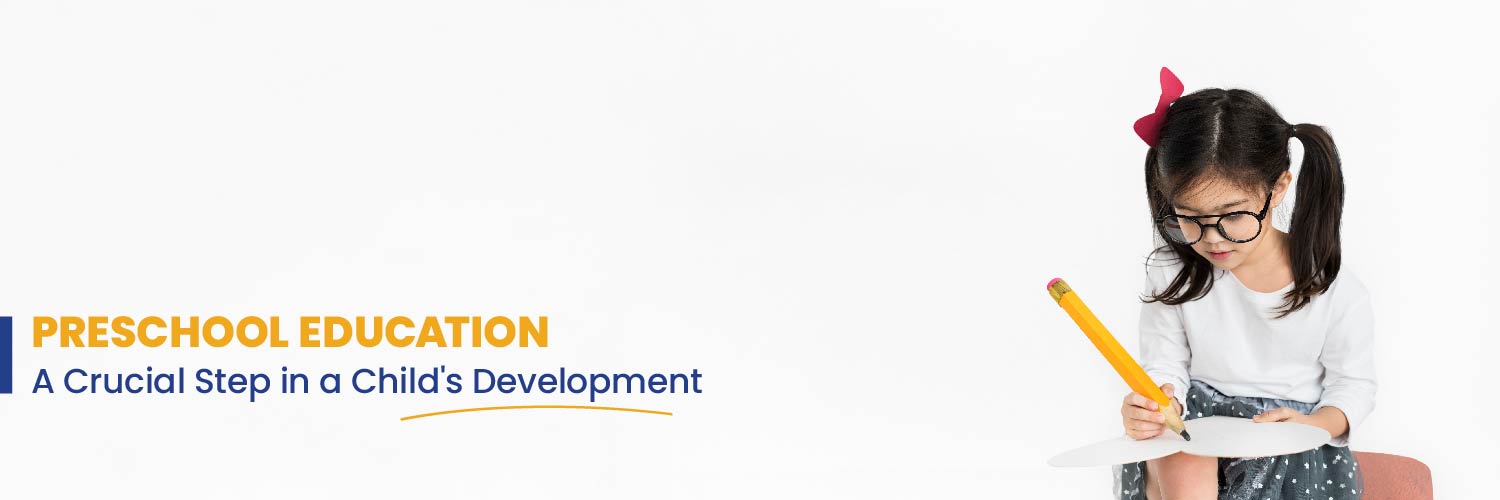International Preschool Education In Focus
Preschool education is a crucial step in a child's development, laying the foundation for future academic and personal success. During these formative years, children learn and grow at an incredible pace, and a high-quality preschool curriculum can help them develop the skills they need to thrive in the future.
Overview:
In this article, we will delve into what a preschool curriculum is, the importance of play-based learning, the role of social-emotional development, skills-based literacy and numeracy, Science, Technology, Engineering, Arts, and Mathematics (STEAM), creativity and problem-solving in preschool curriculum. We will also touch on the benefits of a well-designed preschool curriculum and why it is so important for preparing children for future success.
What is a Preschool Curriculum? Definition
A preschool curriculum is a structured educational program designed for children aged three to six. It includes a set of planned activities and experiences that aim to support the development of young children in various areas, including cognitive, physical, emotional, and social development.
Components of a Typical Preschool Curriculum:
Liberty Education’s preschool curriculum includes a range of activities such as play-based learning, art and crafts, music and movement, storytelling, games, and structured learning activities that focus on developing skills in areas such as literacy, numeracy, and social-emotional development. The structure of the Liberty curriculum and Guides for Teachers takes into account the individual needs and abilities of each child, providing opportunities for hands-on learning and exploration. The curriculum is designed to be fun, engaging, and age-appropriate, helping children build a love of learning that will stay with them for the rest of their lives.
The Importance of Play-Based Learning | Explanation of Play-Based Learning
Play-based learning is a teaching approach that uses play as a means to help young children learn and develop. This approach is based on the idea that children learn best through hands-on experiences and exploration, and that play is a natural and enjoyable way for children to do this.

Benefits of Play-Based Learning for Preschoolers:
Play-based learning has numerous benefits for preschoolers, including helping to develop critical thinking skills, promoting creativity and imagination, and improving social-emotional skills such as empathy and cooperation. Play-based learning also allows children to learn at their own pace, encouraging them to explore and experiment in a supportive and nurturing environment. By engaging in play-based activities, children are able to develop their sense of self, build self-esteem, and develop a love of learning that will stay with them for years to come.
The Role of Social-Emotional Development in Preschool Curriculum
Explanation of Social-Emotional Development:
Social-emotional development refers to the process of developing the skills and abilities that enable individuals to recognize and self-regulate their own emotions, as well as those of others. This includes skills such as self-awareness, empathy, and the ability to regulate emotions and behavior.
How Preschool Curriculum Addresses Social-Emotional Development:
The LED preschool curriculum incorporates activities and experiences that support the development of social-emotional skills. For example, play-based learning activities can provide opportunities for children to work together and practice cooperation and communication skills. Classroom discussions, storytelling, and role-playing activities can help children develop empathy and emotional literacy. By providing a supportive and nurturing environment, a preschool curriculum can help children build a strong foundation of social-emotional skills that will serve them well throughout their lives.
Skills-based Curriculum: Literacy and Numeracy in Preschool
Explanation of Literacy and Numeracy Development:
Literacy and numeracy development refer to the skills and knowledge children need to be able to read, write, and perform basic math concepts. These skills are critical for future academic success, as well as for everyday life.
How Preschool Curriculum Addresses Literacy and Numeracy:
The curriculum incorporates activities and experiences that support the development of literacy and numeracy skills. For example, children are introduced to letters, sounds, and words through songs, stories, and play. Then the students will perform the structured exercises in the textbooks that follow a structured Scope and Sequence. Then they engage in hands-on activities that help them develop number sense and basic math skills. By providing a variety of learning experiences and opportunities for hands-on exploration, Liberty Education’s preschool curriculum will help children develop the building blocks of literacy and numeracy, laying the foundation for future success.
STEAM in Liberty Education’s Preschool Curriculum
Explanation of Early Years STEAM:
STEAM stands for Science, Technology, Engineering, Arts, and Mathematics. It is an interdisciplinary approach to learning that focuses on integrating these subjects in a meaningful and engaging way.
The Importance of STEAM in Preschool Curriculum:
The early years of a child's life are a crucial time for developing a love of learning and exploring new ideas. By incorporating STEAM into the preschool curriculum, children will have fun exploring and discovering the world around them, while also developing critical thinking skills and a foundation for future success in these subjects. Hands-on activities, such as building with blocks or exploring nature, can provide opportunities for children to experiment and learn about science, technology, engineering, and math in a playful and engaging way. Meanwhile, art activities can help children develop creativity, self-expression, and problem-solving skills. By incorporating STEAM into the preschool curriculum, children can develop a well-rounded understanding of the world and a lifelong love of learning.
Creativity and Problem-Solving in Preschool Curriculum
Explanation of Creativity and Problem-Solving:
Creativity refers to the ability to generate new and innovative ideas, while problem-solving refers to the ability to identify and solve problems. Both skills are important for success in many areas of life, including academics, the workplace, and personal relationships.
How Preschool Curriculum Addresses Creativity and Problem-Solving:
A well-designed preschool curriculum provides opportunities for children to engage in activities that encourage creativity and problem-solving. For example, hands-on activities such as art and crafts, building with blocks, and imaginative play can provide opportunities for children to think creatively and find new solutions to problems. Through exploration, experimentation, and discovery, children can develop their own ideas and test their own solutions, helping them to build critical thinking and problem-solving skills. By fostering creativity and problem-solving skills in preschoolers, a well-designed curriculum can help children develop a lifelong love of learning and a foundation for success in all areas of their lives.
Conclusion & Summary: Key Points of Liberty Education’s Preschool Curriculum:
This overview has discussed the key components of a well-designed preschool curriculum, including literacy, numeracy, STEAM education, creativity, problem-solving, and play-based learning. By incorporating these elements into the curriculum, children will develop a strong foundation of skills and knowledge that will serve them well throughout their lives.
Final Thoughts on the Importance of Preschool Curriculum in Preparing Children for Future Success:
Preschool education plays a crucial role in preparing children for success in the future. By providing a well-rounded curriculum that addresses all areas of development, international preschools can help children develop the skills and knowledge they need to succeed in school and beyond. Through hands-on activities, play-based learning, and exploration, children will develop critical thinking, problem-solving, and creativity skills that will be valuable throughout their lives. With a strong foundation of skills and knowledge, children can develop a lifelong love of learning and be well-prepared for success in all areas of their lives.
